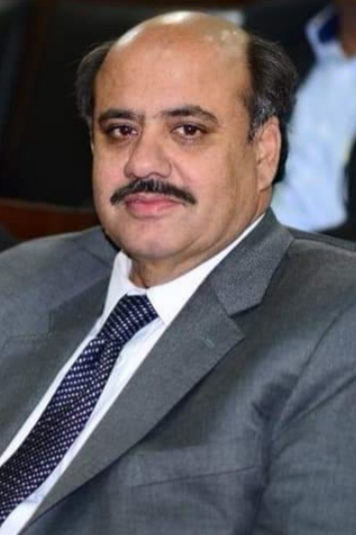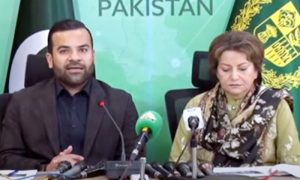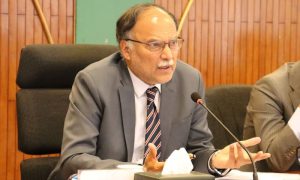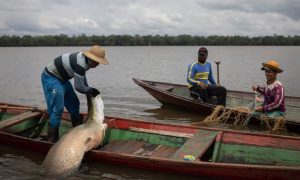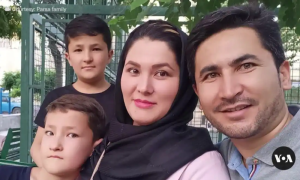Pakistan is encountering dreadful terrorism and extremism. The government needs to revisit and reconstitute its counterterrorism strategy, which is grounded on popular support guaranteed through consensus in Parliament. Besides, an objective political dialogue among the political parties is the need of the hour for internal political stability and engaging the masses to quash effectively terrorist popular and physical sanctuaries. Indeed, without a consensus among the political parties over the launch of Operation Azm-e-Istehkam to combat the menace of terrorism in the country, it could be counterproductive.
Since the United States-led NATO withdrawal from Afghanistan in August 2021, terrorist activities have increased rapidly in the country. The foreign-sponsored terrorist groups are targeting and killing law enforcement agencies’ personnel, kidnapping and butchering innocent citizens and killing foreigners, especially Chinese, to spoil and thwart foreign direct investment in the country.
Realizing the urgency, the government has initiated a new military operation to combat terrorism and extremism. On June 22, the Central Apex Committee of National Action Plan, chaired by Prime Minister Shehbaz Sharif, approved “Operation Azm-e-Istehkam” to eliminate terrorism and extremism nationwide. The presence of Federal Cabinet members, Chief ministers from all provinces and Gilgit-Baltistan, services chiefs, provincial chief secretaries, and other senior civilian, military, and law enforcement officials in the meeting reveal all the stakeholder’s unanimity to reinvigorate and re-energize national counterterrorism campaign through the launch of Operation Azm-i-Istehkam.
Operation Azm-e-Istehkam is a multipronged strategy with kinetic and non-kinetic stratagems, i.e., military, diplomatic, legislative, and socioeconomic plans to decisively defeat terrorism and extremism. “Azm-i-Istehkam will integrate and synergize multiple lines of effort to combat the menaces of extremism and terrorism comprehensively and decisively.”
The Pakistan Army has been bravely fighting with the terrorists since the 2009 Swat operation, but the diplomatic tier of the counterterrorism strategy was less effective. Operation Azm-e-Istehkam drives Islamabad to approach diplomatically likeminded states and coordinate with Shanghai Cooperation Organization’s Regional Anti-Terrorist Structure (RATS) to terminate the foreign financial and material support to terrorist groups such as Taliban (TTP), Balochistan Liberation Army (BLA), Daish (Islamic State Khorasan) involved in the terrorist attacks in the country.
The Operation Azm-e-Istehkam is the need of the hour. Ironically, even before the launch of the operation, it received a divisive response from the parliamentarians due to the extreme polarization in the Pakistani polity. Pakistan Tehreek-e-Insaf members fiercely opposed the operation’s starting without the prior approval of the Parliament. The PTI Chairman Barrister Gohar said, “Any military operation must involve parliamentary consent. Parliament is supreme under the Constitution.”
In the parliamentary system of government, like the Pakistani political system, if the Cabinet approves any policy, including military operations, it is assumed that the majority in the Assembly endorses the decision. However, the opposition can call an in-camera session in the Parliament, even over sensitive issues.
Defense Minister Khawaja Asif, instead of pacifying opposition lawmakers through dialogue or engagement, reacted viciously on the floor of the National Assembly. He said, “They (the opposition) are standing with the terrorists by protesting here today. They are protesting against the martyrs of the Pakistan Army and the army that is still making sacrifices to [counter] terrorism. They have not backed off from their May 9 stance even today.” Such a response to the PTI lawmakers in the National Assembly, particularly by the Defense Minister, increases disharmony and divisiveness in the Pakistani polity and negatively affects the operation.
However, later, rationality prevailed, and Khawaja Asif said that the decision to conduct the operation would go “through the process,” including a debate in Parliament’s in-camera session. He said, “It will go through the cabinet, then it will be presented in the House, and the House would be briefed.” One can expect a similar prudent response from the PTI leadership within and outside the Parliament. However, the statements of the PTI leaders are not encouraging. PTI leader Qaiser said, “Our belief is that a military operation is not the solution. All political parties must play their role to establish peace in the province.” He is ignoring the fact that the battle-hardened foreign sponsored terrorist groups necessitate kinetic action.
In the present pessimistic political situation, Pakistan Peoples Party chairman Bilawal Bhutto-Zardari’s visionary recommendation has germinated optimism. On June 21, he drew attention to the cardinal cause of the internal insecurity: “The politics of hatred in Islamabad is at its peak.” He rightly called for a dialogue among all democratic forces to take the country out of the crisis. He said, “There’re many leaders who’re not even ready to talk. They don’t want to even shake hands with each other. I urge them all once again that all political parties, whether they’re in the government or opposition, initiate dialogue with all political forces. Don’t let your ego or personal issues dominate this process. If you want to bring Pakistan out of economic crisis and strengthen the Parliament, you would have to talk to democratic forces.”
Indeed, the country’s stability is out of the question without swapping enmity with amity among the political forces. Thus, the political leaders, especially PML-N and PTI, should listen to Mr. Bilawal and initiate a respectful and civilized discussion to steer the country out of the numerous crises, including extremism and militancy.
To conclude, a consensual national strategy to combat the menace of terrorism is impossible without recuperating the tumultuous landscape of Pakistani politics. Indeed, the government is responsible for engaging the opposition on the national security issue. Conversely, the opposition party realizes its duty to provide an alternative vision and policy instead of adopting a rejectionist approach.









